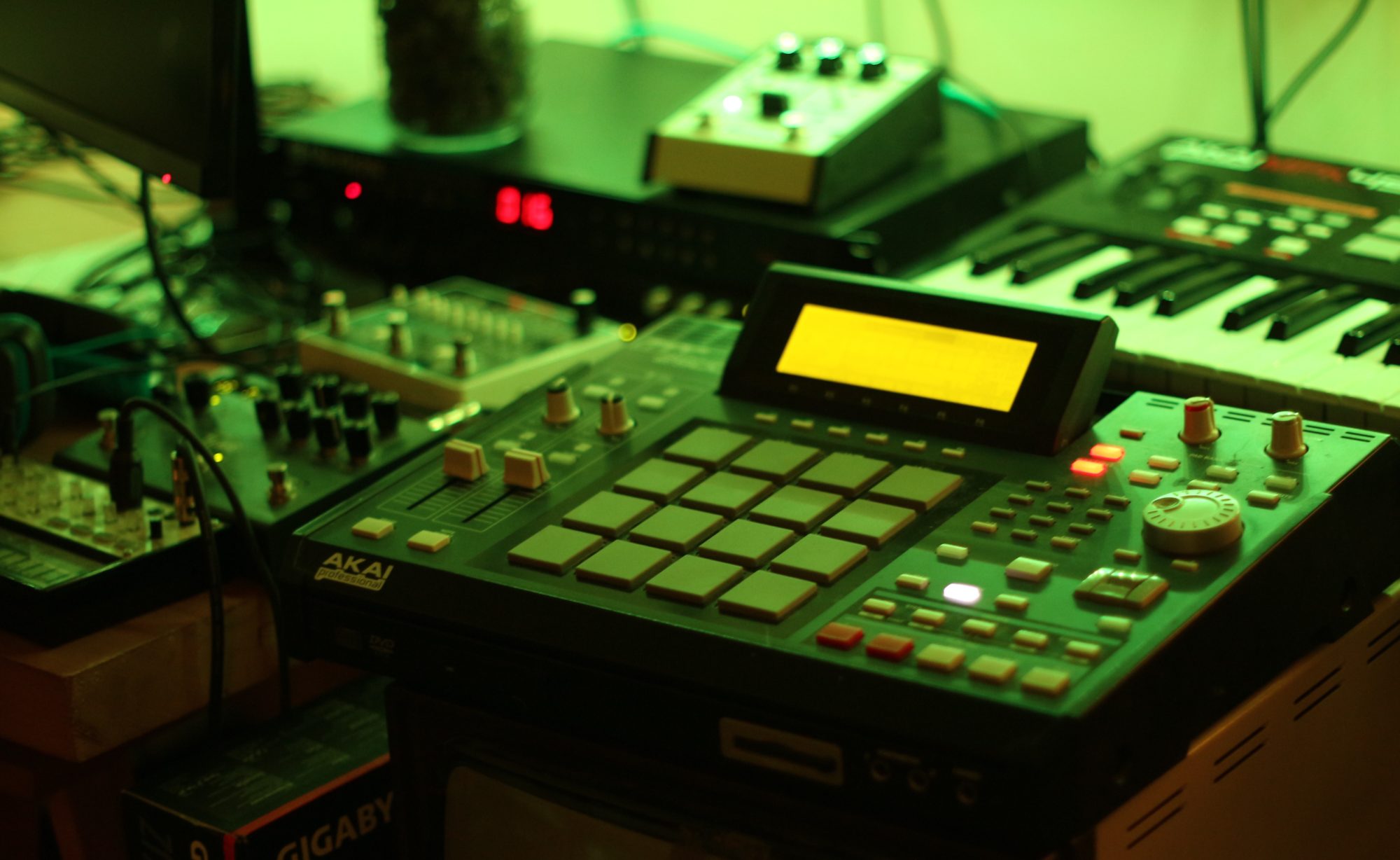Here is a video I made while diagnosing and attempting to fix a problem with one of my gf’s old CDJ’s.
It turned out to be a very simple mechanical fix, watch the video below to see more.

A blog about music, IT and technology
Here is a video I made while diagnosing and attempting to fix a problem with one of my gf’s old CDJ’s.
It turned out to be a very simple mechanical fix, watch the video below to see more.
I’ve updated the Arduino code from my previous post here to add a very crude form of swing to the Volca sync beat.
Unfortunately it can’t do real swing as the Volcas currently take 1/8th note sync signals and have 1/16th note sequencers.
The code just changes every other beat signal to vary by a set percentage. This can be positive, making the first two beats slower or negative making the first two beats faster.
You can see a demonstration here.
Hello everyone.
I thought I’d share some experimentation I’ve been doing with the Arduino and a 12 bit dac (mcp4921).
I’d been looking for things I could do with it and one obvious thing that came to mind was creating a sync signal for the Volca’s.
I analysed the output of the sync signal from the SQ-1 as best I could with a multimeter and could see that the signal was peaking around 0.32 volts.
Now if I could get the dac to output a voltage somewhere in that range at a regular interval I’d be able to control the Volca’s tempo from the Arduino.
The mcp4921 connects to the Arduino via SPI. Here I’m using pins 10 (CS to dac pin 2), 11 (SDI/MOSI to dac pin 4) & 13 (CLK to dac pin 3).
The rest of the dac pins are configured as follows;
pin 1 to Arduino +5v
pin 5 to Arduino ground
pin 6 Voltage reference to Arduino +5v
pin 7 to Arduino ground
pin 8 dac output to positive on headphone jack


You can download the Arduino sketch [here]
IPFS hash: QmP92HoznfndYv6Wh9zJPkWP2uvHy9zV5Tmr7QZa1rtPUk
The sketch employs a delay between setting the signal high and low which is set by the value of the variable tempo_delay. The delay is in ms and converting from bpm to the correct ms delay is simply as case of using the following formula. tempo_delay = (60,000 / BPM) /2.
Here are some rough values to get you started.
80 bpm = 376
90 bpm = 334
120 bpm = 250
126 bpm = 238
I’ve posted a video to YouTube tonight of some of my breadboard experiments with CMOS logic chips as DIY synth oscillators (CD40106 & CD4093) connected to the Korg SQ-1.
You can check that out here.